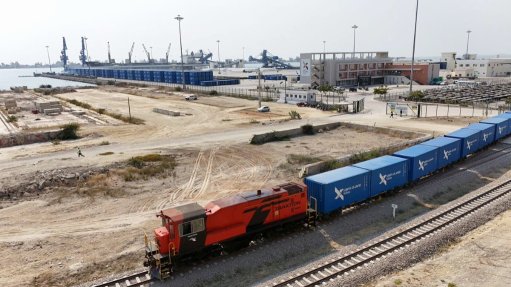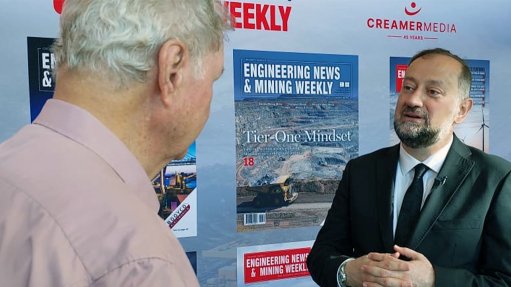Corruption-accused contenders
Apologies in advance: for the umpteenth time, I cite Kenyan public intellectual, anticorruption crusader and pan-Africanist PLO Lumumba’s take on Africans’ attitude to corrupt politicians, which, he says, is more accommodating than is the case on other continents. In a 2021 Facebook post, he wrote: “In Japan, a corrupt person kills himself. In China, they will kill him. In Europe, they jail him. In Africa, he will present himself for election.”
A regular readers of this column may know, Nigerians go to the polls later this month, and one of those vying for the highest public office in the West African country – the population of which is the biggest in Africa, at an estimated 213-million, with its gross domestic product of $1.14-trillion being the continent’s second biggest – is one Atiku Abubakar. He is not exactly an obscure character, having served as Olusegun Obasanjo’s Vice President from 1999 to 2007. He is also a wealthy business mogul, with interests spanning beverage and animal feed manufacture, as well as an American-style private university.
This year’s will be Abubakar’s sixth stab at the Presidency, with all five previous attempts having been unsuccessful.
Towards the end of January – less than a month before election day, February 25 – an audio clip surfaced in which someone alleged to be Abubakar is heard discussing ways to divert State funds. Instead of responding to whether the voice is his, all the 76-year-old could tell reporters was: “That audio has disclosed nothing new.” The fellow is continuing with his campaign, as if nothing has happened. However, the governing All Progressives Congress (APC) has started legal proceedings to get him off the ballot paper, but whether this will succeed is anyone’s guess.
Abubakar has long been dogged by corruption allegations, although none have been proved. One of these, according to a 2010 US Senate report titled ‘Keeping foreign corruption out of the US: Four case histories’, is that he and his wife brought over $40-million of suspect funds into the US, including at least $1.7-million in bribe payments. Reportedly, he was subsequently banned from entering the US in accordance with Presidential Proclamation 7750. However, he did enter the US in November 2018, and antigraft watchdog Global Witness claims that the visit was facilitated by Ballard Partners, a lobbying firm with strong ties to the then US President, Donald Trump.
Abubakar was also a major figure in the corruption trial of former US Congressman William Jefferson, who described Abubakar in the 2010 Senate report as “really corrupt”, adding that he needed money to bribe Abubakar to approve a US company’s business deals in Nigeria.
A former Abubakar aide who is behind the leaked audio has also alleged that his ex- principal and Obasanjo used special-purpose vehicles to syphon off public funds, using the proceeds to found their private universities.
Allegations of malfeasance have also been levelled against Bola Tinubu, the candidate for the APC. These include alleged drug trafficking charges against him in the US, for which he is said to have reached a forfeiture deal, the absence of academic records, lack of accurate information about his age and lingering money laundering investigations.
That Abubakar and Tinubu are in the running to succeed Muhammadu Buhari as Nigeria’s next President vindicates Lumumba’s quip that corrupt African politicians “offer themselves for election”, unlike their counterparts elsewhere in the world. If Nigeria was Japan, for example, these two Presidential contenders could have taken their own lives yonks ago – when the allegations against them first surfaced. I previously wrote in this column about Japanese politicians and top bureaucrats who committed suicide simply because someone had merely accused them of corruption.
Article Enquiry
Email Article
Save Article
Feedback
To advertise email advertising@creamermedia.co.za or click here
Comments
Press Office
Announcements
What's On
Subscribe to improve your user experience...
Option 1 (equivalent of R125 a month):
Receive a weekly copy of Creamer Media's Engineering News & Mining Weekly magazine
(print copy for those in South Africa and e-magazine for those outside of South Africa)
Receive daily email newsletters
Access to full search results
Access archive of magazine back copies
Access to Projects in Progress
Access to ONE Research Report of your choice in PDF format
Option 2 (equivalent of R375 a month):
All benefits from Option 1
PLUS
Access to Creamer Media's Research Channel Africa for ALL Research Reports, in PDF format, on various industrial and mining sectors
including Electricity; Water; Energy Transition; Hydrogen; Roads, Rail and Ports; Coal; Gold; Platinum; Battery Metals; etc.
Already a subscriber?
Forgotten your password?
Receive weekly copy of Creamer Media's Engineering News & Mining Weekly magazine (print copy for those in South Africa and e-magazine for those outside of South Africa)
➕
Recieve daily email newsletters
➕
Access to full search results
➕
Access archive of magazine back copies
➕
Access to Projects in Progress
➕
Access to ONE Research Report of your choice in PDF format
RESEARCH CHANNEL AFRICA
R4500 (equivalent of R375 a month)
SUBSCRIBEAll benefits from Option 1
➕
Access to Creamer Media's Research Channel Africa for ALL Research Reports on various industrial and mining sectors, in PDF format, including on:
Electricity
➕
Water
➕
Energy Transition
➕
Hydrogen
➕
Roads, Rail and Ports
➕
Coal
➕
Gold
➕
Platinum
➕
Battery Metals
➕
etc.
Receive all benefits from Option 1 or Option 2 delivered to numerous people at your company
➕
Multiple User names and Passwords for simultaneous log-ins
➕
Intranet integration access to all in your organisation


















